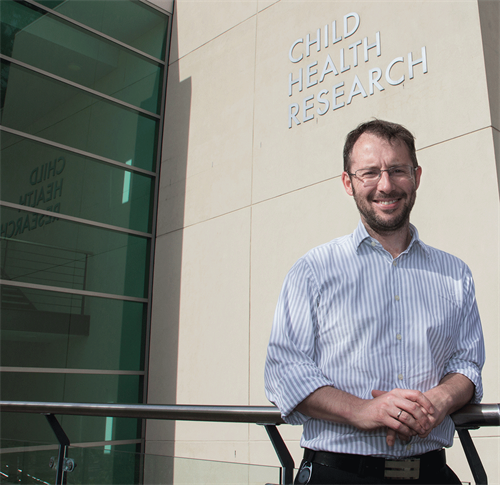Search
Research
A phase 3, multicenter, randomized, double-blind, active comparator-controlled study to evaluate the safety and tolerability of V114 in healthy infants (PNEULINK)Jennifer Peter Kent Richmond RN MBBS MRCP(UK) FRACP Clinical Research Manager Head, Vaccine Trials Group Jennifer.Kent@thekids.org.au Clinical
Research
A Phase 3, randomized, double-blind trial to evaluate the safety and immunogenicity of a 20-valent pneumococcal conjugate vaccine given as a series of 2 infant doses and 1 toddler dose in healthy infants (NeXXstep)Jennifer Peter Kent Richmond RN MBBS MRCP(UK) FRACP Clinical Research Manager Head, Vaccine Trials Group Jennifer.Kent@thekids.org.au Clinical
Research
A Phase III, randomized, controlled, observer-blind study to demonstrate effectiveness, immunogenicity and safety of GSK's meningococcal Group B and combined ABCWY vaccines when administered to healthy adolescents and young adults (Quintet)Jennifer Peter Kent Richmond RN MBBS MRCP(UK) FRACP Clinical Research Manager Head, Vaccine Trials Group Jennifer.Kent@thekids.org.au Clinical
Research
A randomized, controlled, observer-blind, phase 1/2a study to evaluate the safety, reactogenicity, and immunogenicity of Ad26.RSV.preF in RSV-seronegative toddlers 12 to 24 months of ageJennifer Peter Kent Richmond RN MBBS MRCP(UK) FRACP Clinical Research Manager Head, Vaccine Trials Group Jennifer.Kent@thekids.org.au Clinical
Research
AusVaxSafetyChristopher Peter Peter Tom Blyth Jacoby Richmond Snelling MBBS (Hons) DCH FRACP FRCPA PhD BA (Hons) MSc MBBS MRCP(UK) FRACP BMBS DTMH GDipClinEpid
Research
OPTIMUM: OPTimising IMmunisation Using Mixed schedulesPat Peter Susan Tom Jennifer Holt Richmond Prescott Snelling Kent PhD, DSc, FRCPath, FRCPI, FAA MBBS MRCP(UK) FRACP MBBS BMedSci PhD FRACP BMBS DTMH
Research
Pertaprime: An investigator-driven phase II-III randomised, observer-blind, controlled trial to demonstrate non-inferior immunogenicity of Pertagen® in comparison to Boostrix® in healthy young Australian adults aged 18-25 yearsJennifer Peter Kent Richmond RN MBBS MRCP(UK) FRACP Clinical Research Manager Head, Vaccine Trials Group Jennifer.Kent@thekids.org.au Clinical
Research
Protective Vaccine Responses in Infants after Maternal Pertussis Vaccination (PRIME) StudyChristopher Jennifer Peter Blyth Kent Richmond MBBS (Hons) DCH FRACP FRCPA PhD RN MBBS MRCP(UK) FRACP Centre Head, Wesfarmers Centre of Vaccines and


News & Events
Whooping cough vaccine could be a new weapon in the fight against food allergiesResearchers from The Kids Research Institute Australia and Curtin University will use a $3.9 million grant from the National Health and Medical Research Council to investigate whether a type of whooping cough vaccine could provide bonus protection against food allergies and eczema.
